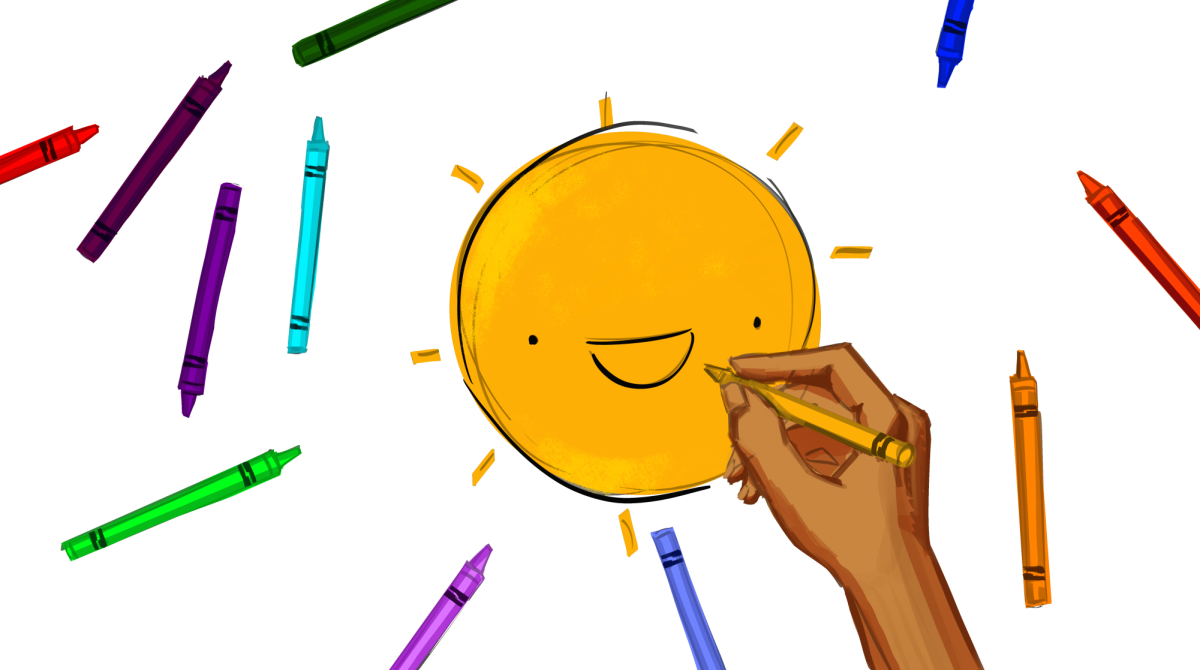“I wish you were my mom,” a camper told me through a toothy grin as I helped her tie her shoes after swim lessons. I immediately laughed at her sincerity, unsure how to respond.
But when I went on break that afternoon, a wave of sadness washed over me. As I sat in the break room thinking about what she said, I thought about my childhood.
I attended the same summer camp when I was younger at Burgess Pool in Menlo Park. Every year, I’d count down the days until I could return, excited to walk across the sunbaked pavement and dive into the refreshing pool.
Camp was freedom to me, because for two months the weight of school and growing would disappear, replaced with moments of simplicity like running barefoot on grass or laughing until my stomach hurt.
Eventually, however, I grew up. As I entered high school and the pressure of college applications loomed over me, summer became time for test prep, volunteer hours and work experience.
That’s what becoming a counselor originally meant to me. I thought I was stepping into a position of authority, ready to guide campers and gain an experience that I could potentially put on my college applications. But it didn’t take long to realize that the job wasn’t as simple as leading a game of capture the flag.
Sometimes, the kids wouldn’t listen, no matter how many times I clapped my hands and said “one, two, three, eyes on me!”
I was left feeling frustrated, and some days I didn’t even want to come to work because I felt like I wasn’t mentally cut out for dealing with kids who ignored boundaries, disrespected rules and seemed to act out just for the sake of it.
Some days, no matter how many times I enforced consequences, like taking away Otter Pops, nothing worked.
Some campers would deliberately push my limits, refusing to stay behind camp lines, jumping on me despite my warnings not to and even taking advantage of my mistakes, like using my money at the vending machine when I forgot to press “done.”
It wasn’t just the open defiance that got to me, but the feeling of being powerless. No matter what I did, they saw my rules as an obstacle instead of understanding I was trying to keep things fun and safe for everyone.
To me, being a counselor isn’t just about collecting a paycheck after two weeks.
It is about teaching campers how to play tic-tac-toe, watching their excited faces when I let them win, listening to them talk about their day, or sitting with them when they aren’t feeling well.
I could have easily quit, but as I sat in the break room, I realized how much the camper’s words stuck with me.
Through the smudged window I could see the campers laughing on the field, the shirts I had dyed for them just the other day bright against the afternoon light.
It felt great to feel like I could be that person for someone else.
After my epiphany, I realized that I didn’t really want to quit — I just wanted to find a way to actually get through to the campers so they weren’t constantly misbehaving.
Once I realized this, I shifted my approach with these kids, realizing that it was worth the effort.
I used tactics like setting clearer boundaries and enforcing them consistently, using a three-strike system instead of taking privileges away all at once. This change worked pretty effectively.
I learned to pull kids aside for one-on-one conversations instead of calling them out in front of their friends, making sure they understood how their actions affected others.
And when I felt like I didn’t know what to do, I relied on fellow counselors and camp leads for support, realizing that I didn’t have to handle everything alone.
I will forever be grateful for what being a counselor taught me.
On days when I didn’t feel like coming to work, seeing campers’ faces light up when they saw me and hearing them yell “Maya!” in their squeaky voices made me appreciate my job so much more.
It’s one of those special jobs where you’re not just there to complete tasks, but to create memories and actively influence the lives of children. You have the opportunity to make a real difference in their days.
I went to camp thinking I’d be the one teaching them. Instead, they taught me how to be present: how to embrace summer, laugh and play — how to let go of the stress I carried and enjoy the moment the way they did so effortlessly.
Somewhere along the way, I had forgotten how to just be young. And the chaos of camp definitely reminded me.





